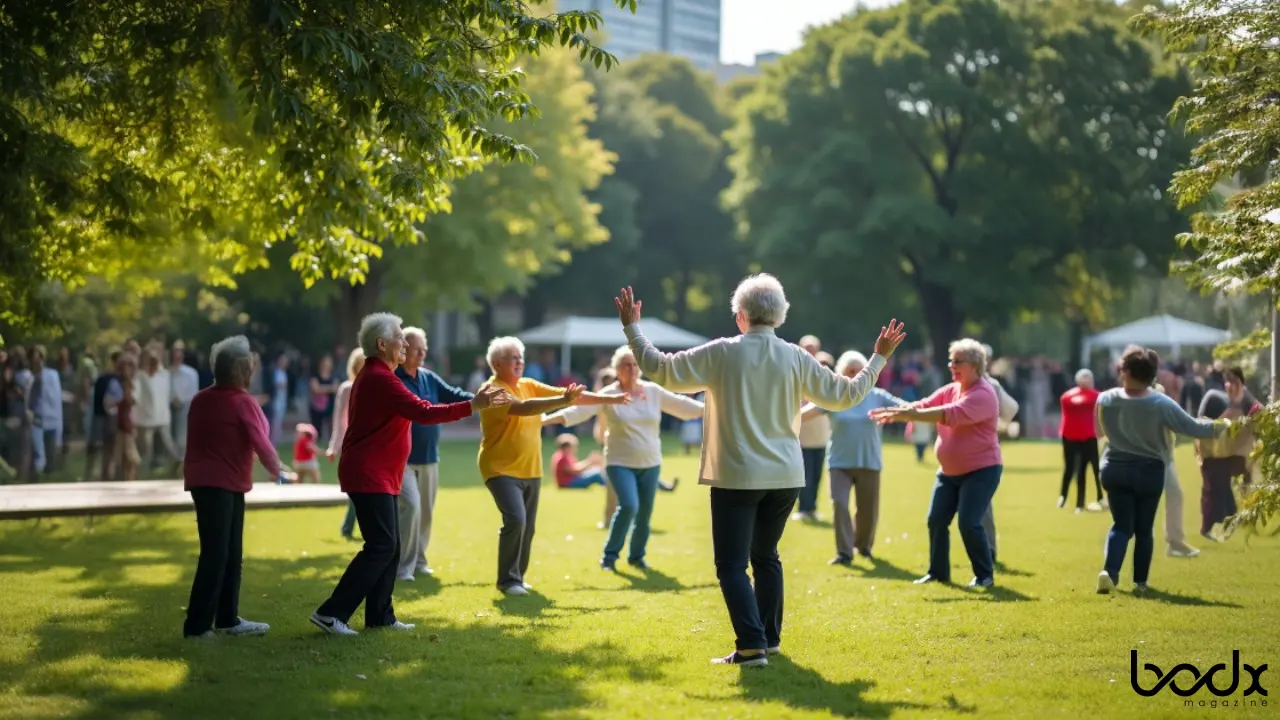Aging is an inevitable part of life, but how we age can significantly impact our quality of life. Embracing healthy habits and making informed lifestyle choices can lead to a longer, happier, and more fulfilling life. In this comprehensive guide, we will explore various tips and strategies for healthy aging, covering everything from nutrition and exercise to mental well-being and social connections.
The Importance of Nutrition in Healthy Aging
Balanced Diet: The Foundation of Good Health
A balanced diet is crucial for maintaining overall health and well-being as we age. Consuming a variety of nutrient-dense foods ensures that our bodies receive the essential vitamins and minerals needed to function optimally.
Key Nutrients for Aging Gracefully
- Protein: Essential for muscle maintenance and repair. Include lean meats, fish, beans, and legumes in your diet.
- Calcium and Vitamin D: Vital for bone health. Incorporate dairy products, leafy greens, and fortified foods.
- Omega-3 Fatty Acids: Support heart health and cognitive function. Found in fatty fish, flaxseeds, and walnuts.
- Antioxidants: Protect cells from damage. Eat plenty of fruits and vegetables, especially berries, nuts, and dark chocolate.
Hydration: The Unsung Hero
Staying hydrated is often overlooked but is essential for maintaining bodily functions. Aim to drink at least eight glasses of water daily, and more if you are physically active.
The Role of Physical Activity in Aging Well
Regular Exercise: A Key to Longevity
Engaging in regular physical activity can significantly improve your quality of life as you age. Exercise helps maintain a healthy weight, reduces the risk of chronic diseases, and enhances mental health.
Types of Exercise for Older Adults
- Aerobic Exercise: Activities like walking, swimming, and cycling improve cardiovascular health.
- Strength Training: Lifting weights or using resistance bands helps maintain muscle mass and bone density.
- Flexibility Exercises: Yoga and stretching improve flexibility and reduce the risk of injury.
- Balance Exercises: Tai chi and balance drills can prevent falls and improve stability.
Creating a Sustainable Exercise Routine
Consistency is key when it comes to exercise. Find activities you enjoy and incorporate them into your daily routine. Aim for at least 150 minutes of moderate-intensity aerobic activity per week, along with muscle-strengthening activities on two or more days per week.
Mental Well-Being: Nurturing a Healthy Mind
Cognitive Health: Keeping Your Brain Sharp
Maintaining cognitive health is essential for aging well. Engaging in activities that challenge your brain can help keep your mind sharp and reduce the risk of cognitive decline.
Brain-Boosting Activities
- Puzzles and Games: Crossword puzzles, Sudoku, and brainteasers stimulate cognitive function.
- Learning New Skills: Taking up a new hobby or learning a new language can enhance brain health.
- Reading and Writing: Regularly reading books and writing can improve memory and cognitive abilities.
Managing Stress: A Key to Mental Health
Chronic stress can negatively impact both physical and mental health. Developing effective stress management techniques is crucial for healthy aging.
Stress-Reduction Strategies
- Mindfulness and Meditation: Practicing mindfulness and meditation can reduce stress and improve mental clarity.
- Deep Breathing Exercises: Simple breathing exercises can help calm the mind and reduce anxiety.
- Physical Activity: Exercise is a natural stress reliever and can boost mood.
Social Connections: Building a Supportive Network
The Power of Social Interaction
Maintaining strong social connections is vital for emotional well-being and can even impact physical health. Social interactions provide a sense of belonging and purpose, which are essential for a happy life.
Ways to Stay Socially Active
- Join Clubs and Groups: Participate in community clubs, hobby groups, or volunteer organizations.
- Stay Connected with Family and Friends: Regularly communicate with loved ones through phone calls, video chats, or in-person visits.
- Attend Social Events: Participate in social gatherings, such as parties, religious services, or community events.
Building New Relationships
As we age, it is important to continue building new relationships. This can be achieved by being open to meeting new people and engaging in activities that interest you.
Healthy Habits for a Long and Happy Life
Quality Sleep: The Cornerstone of Health
Getting enough quality sleep is essential for overall health and well-being. Poor sleep can lead to a range of health issues, including cognitive decline, weakened immune function, and increased risk of chronic diseases.
Tips for Better Sleep
- Establish a Routine: Go to bed and wake up at the same time every day.
- Create a Relaxing Environment: Ensure your bedroom is dark, quiet, and cool.
- Limit Screen Time: Avoid screens at least an hour before bedtime.
- Stay Active: Regular physical activity can improve sleep quality.
Avoiding Harmful Habits
Certain habits can negatively impact health and accelerate the aging process. Avoiding these can contribute to a longer, healthier life.
Habits to Avoid
- Smoking: Smoking is linked to numerous health issues, including heart disease, cancer, and respiratory problems.
- Excessive Alcohol Consumption: Limit alcohol intake to reduce the risk of liver disease, cancer, and other health problems.
- Poor Diet: Avoid processed foods, excessive sugar, and unhealthy fats.
Regular Health Check-Ups
Regular health check-ups are crucial for early detection and prevention of health issues. Schedule routine visits with your healthcare provider to monitor your health and address any concerns.
Conclusion
Healthy aging is about making informed choices and adopting habits that promote physical, mental, and emotional well-being. By focusing on nutrition, physical activity, mental health, social connections, and avoiding harmful habits, we can enjoy a long, happy, and fulfilling life. Remember, it’s never too late to start making positive changes. Embrace these tips and take proactive steps towards a healthier future.
FAQs
- What are the best foods for healthy aging?
- Foods rich in antioxidants, lean proteins, healthy fats, and essential vitamins and minerals are best for healthy aging.
- How much exercise is recommended for older adults?
- Aim for at least 150 minutes of moderate-intensity aerobic activity per week, along with muscle-strengthening activities on two or more days per week.
- What are some effective stress management techniques?
- Mindfulness, meditation, deep breathing exercises, and physical activity are effective stress management techniques.
- How can I improve my sleep quality?
- Establish a routine, create a relaxing environment, limit screen time, and stay active to improve sleep quality.
- Why are social connections important for healthy aging?
- Social connections provide emotional support, a sense of belonging, and can positively impact physical health.
- What are the key nutrients for aging gracefully?
- Protein, calcium, vitamin D, omega-3 fatty acids, and antioxidants are key nutrients for aging gracefully.
- How can I keep my brain sharp as I age?
- Engage in brain-boosting activities like puzzles, learning new skills, reading, and writing to keep your brain sharp.
- What habits should I avoid for healthy aging?
- Avoid smoking, excessive alcohol consumption, and poor dietary choices for healthy aging.
- How often should I have health check-ups?
- Schedule regular health check-ups with your healthcare provider to monitor your health and address any concerns.
- What are some ways to stay socially active?
- Join clubs and groups, stay connected with family and friends, and attend social events to stay socially active.

















